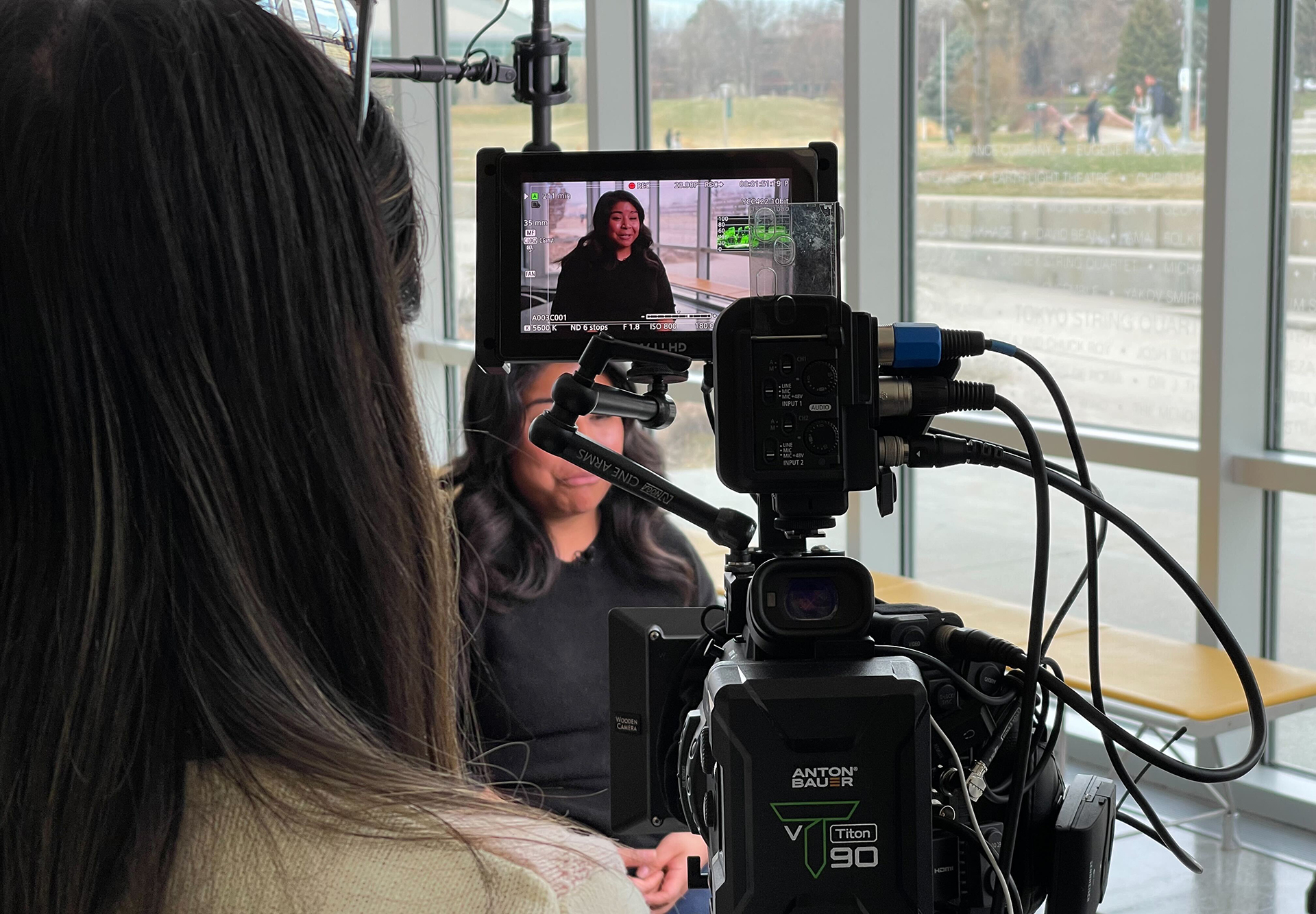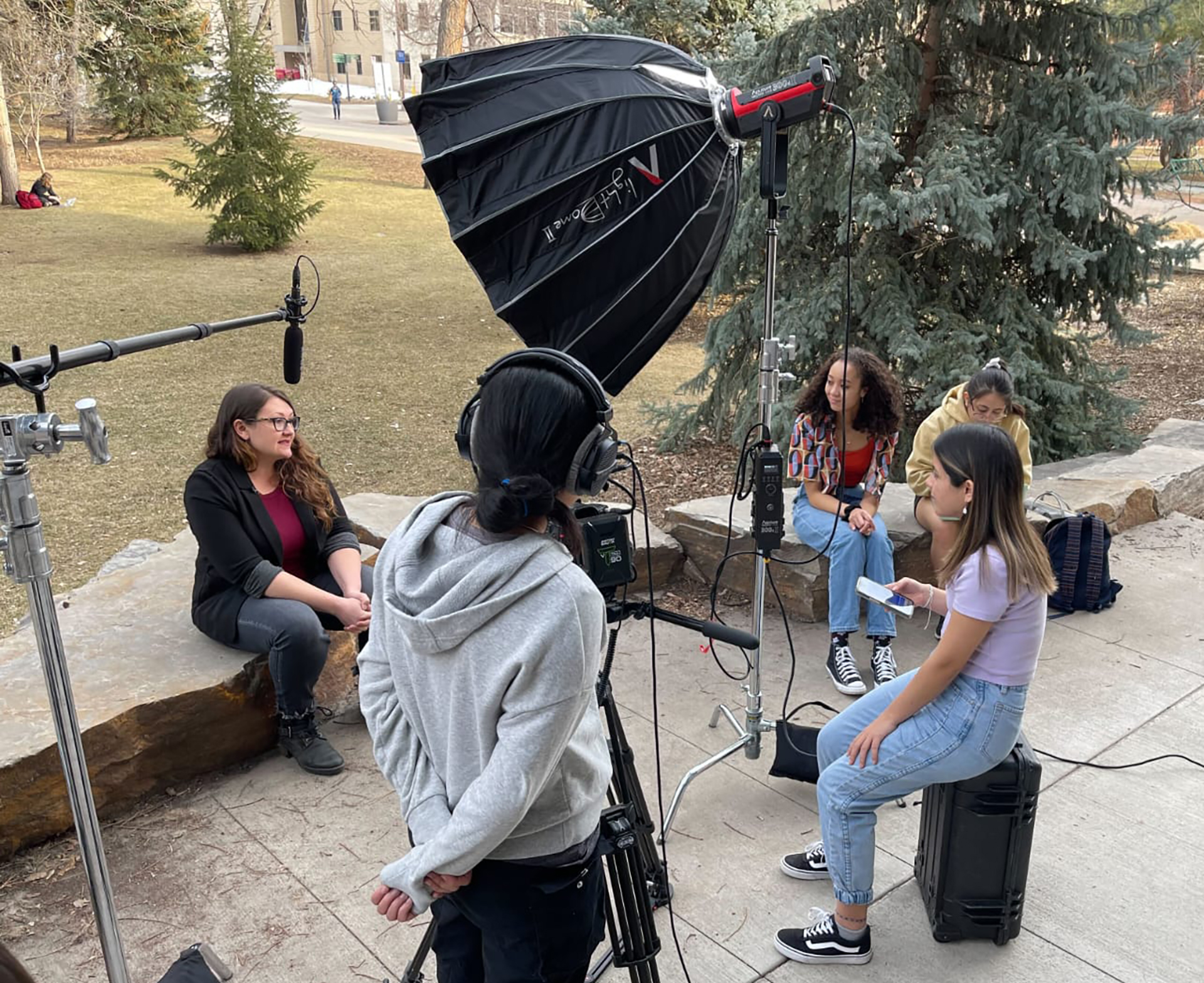
Four Colorado State University students worked with professional filmmakers last spring to create a documentary about conservation and inspiring figures working toward equitable outdoor access for everyone in Colorado. Their short film, Elevating Voices, will premiere in Fort Collins on Feb. 23 and in Denver on March 9.
The project, a collaboration between the Salazar Center for North American Conservation and Next 100 Colorado, was funded by the Gates Family Foundation. Four students from three different colleges were selected based on their applications. With the support of professionals from RELIGHT Creative, they produced, filmed and edited the documentary.
The film highlights the experiences of Coloradans working toward conservation who have traditionally been marginalized in that space.
“This documentary aims to get viewers acquainted with BIPOC (Black, Indigenous and people of color) members of the community doing vital work in the conservation sector,” said Caroline Baker, a recent Warner College of Natural Resources graduate who was selected for the program. “Many times, BIPOC people are the ones on the frontlines making the most difference, but they continue to be largely overlooked. We want to shed more light on this persistent albeit slowly changing trend.”
Students were mentored by members of Next 100 Colorado, a coalition working to improve access for all to the Colorado outdoors.
“People haven’t had the same access to the outdoors,” said Jerry Otero, co-chair of Next 100’s storytelling group. “In the wonderful state we live in, we want to improve that. Not only does that improve the outcomes for those people who have access to the outdoors, it improves our whole state, our brand, our tax dollars, so it’s a win, win, win.”

The students were inspired by their mentors’ experiences and reflections and decided to make them the focus of the film. The creative endeavor required them to adapt and shift to a more holistic perspective, similar to conservation work, Baker said.
Baker, who was studying conservation leadership in graduate school while working on the documentary, was interested in learning how to make natural science more accessible.
“In order to bring messages of sustainability to a wider audience, equitable conservation communication is important,” she said.
Student filmmakers
Caroline Baker, Warner College of Natural Resources
Sydney Collins, College of Natural Sciences
Adriana Gallegos, College of Liberal Arts
Abigail Narvaez, College of Liberal Arts
The project’s partners from Next 100 and RELIGHT Creative were impressed with the students’ effort, ability and finished product. They are excited to share the film with audiences.
“I would hope that viewers would approach the film with an open mind and put any assumptions aside, knowing these are real experiences of real people,” said Carlos Malache, RELIGHT Creative’s founder and director of photography, who worked with the students to produce the film.
Baker said she hopes the documentary’s universal themes resonate with viewers.
“Environmental health is human health and vice versa,” she said. “Conservation issues are universal, and they’re in our collective best interest to prioritize. This means understanding that the people who can best lead long-term sustainable solutions are the ones who are most connected to the environment we aim to protect.”
The Salazar Center will host two public premieres of Elevating Voices, the first at 6 p.m. on Feb. 23 at the Lory Student Center and another at 6 p.m. on March 9 at the CSU Spur Hydro Building Theater in Denver. In addition to each screening, there will be a brief discussion with local environmental justice leaders and a reception with light refreshments. The events are free, with a suggested donation of $10.